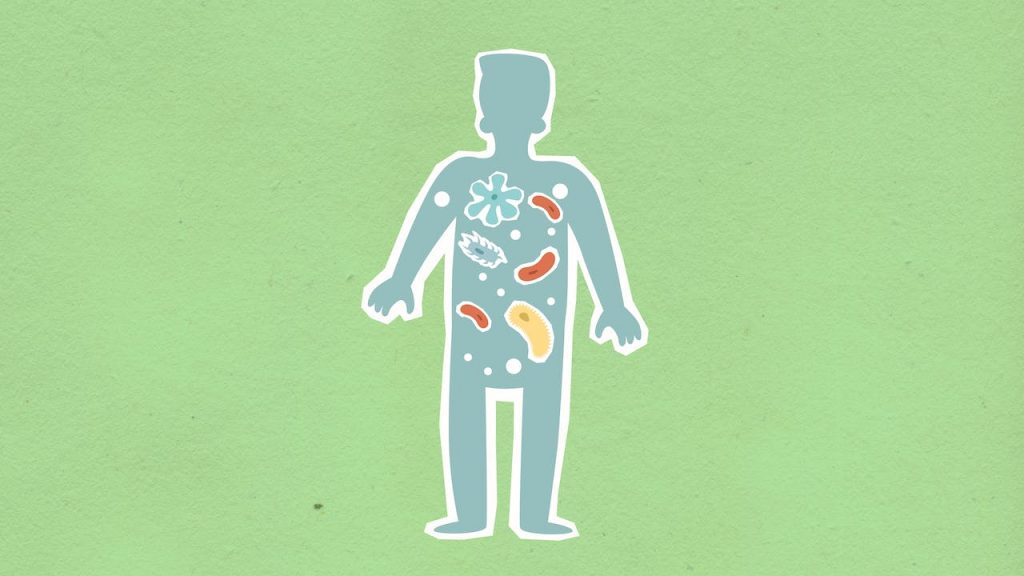This post is also available in Dutch .
It is inevitable; as we age, our brains age with us. This process begins between the ages of 30 and 40. How quickly this occurs depends on factors such as your lifestyle and overall health. What is less known and has been researched recently is that gut bacteria also play a significant role.
The microbiome
In your intestines, billions of bacteria from hundreds of species collectively form your microbiome. They are so abundant that 1.5 kilograms of your body weight is purely bacteria! Various factors, including your lifestyle, diet, environment, and medication use, influence the composition of the microbiome.
These bacteria play a crucial role in digesting fibers and carbohydrates but also serve other functions, including hormone production and supporting the immune system. Moreover, research is uncovering more and more about the link between the microbiome and the brain: The composition of gut bacteria has, for example, been linked to psychological conditions such as ADHD and depression.
Your gut and brain communicate
The intestines communicate with the brain in several ways. A major nerve, the vagus nerve, connects the intestines to the brain, allowing direct signals to travel back and forth. Besides this direct connection, the microbiome plays a significant role by producing hormones and other substances that influence the rest of the body and the brain. For instance, harmful bacteria can trigger an inflammatory response in the intestines. Inflammatory substances can then enter the brain through the bloodstream, where they can cause damage and changes. This process is linked to the development of psychological conditions as well as brain aging.
Healthy aging with a healthy gut microbiome
Brain aging seems to be specifically affected by a deficiency of beneficial bacteria and the substances they produce. This connection is corroborated by research, which demonstrates that young people typically have a different microbiome than older individuals. We also know that people with dementia, in whom the brain ages too fast, have a different microbial composition than those without dementia.
The link between the health of the gut microbiome and brain aging poses opportunities: maybe we can slow down brain aging by controlling the microbiome. This suggestion has been tested in studies with mice: old mice received a fecal transplant from young mice and vice versa, effectively reversing their microbiomes. What was discovered? The young mice with the old microbiome experienced more brain inflammation, which led to brain aging. On the other hand, the old mice with a young microbiome experienced less inflammation. It appears that by maintaining the health of your gut bacteria, you can slow down brain aging.
If you’re not particularly looking forward to a fecal transplant, you are in luck; fortunately, there are other ways to improve your microbiome. For example, consuming a lot of fiber promotes the growth of beneficial bacteria. Exercise, quality sleep, and reducing stress are also beneficial for your microbiome and potentially for your brain as well.
Would you like to participate in research on the microbiome and brain aging?
The Donders Institute is currently seeking participants between the ages of 60 and 75 for a study involving a vitamin supplement for the intestines. For more information, please visit the COMBI study website.
Credits
Author: Judith Scholing
Buddy: Lucas Geelen
Editor: Eline de Boer
Translation: Maartje Koot
Editor translation: Vivek Sharma
Image by Monstera Production via Pexels
